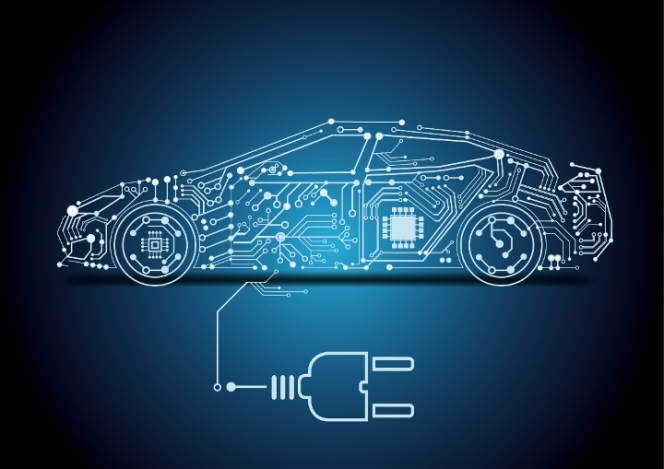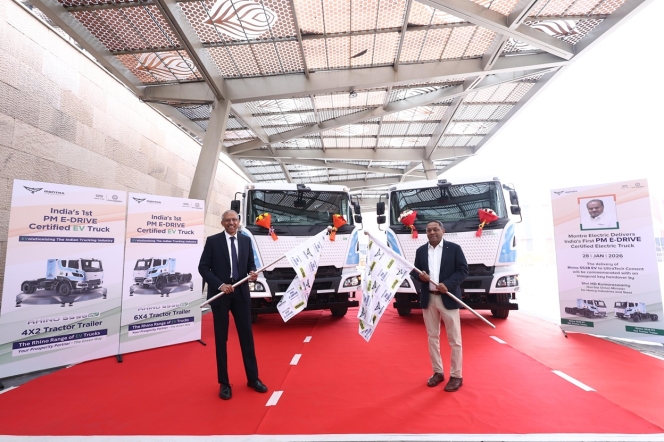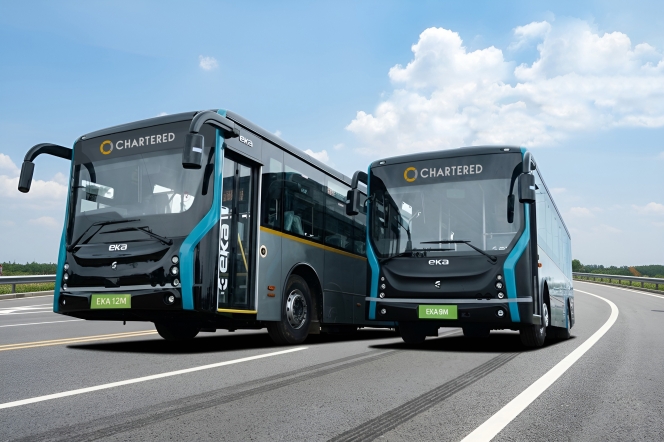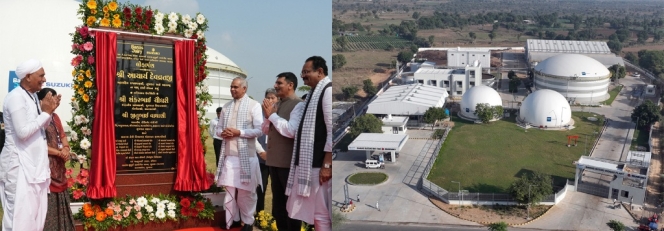
Like an IC engine automobile where the engine and the driveline make up the key aggregates, in EVs the key aggregates are the battery and the motor. While an IC engine may account for 23 to 30 percent of the total cost and the driveline component such as a gearbox, propeller shaft, transaxle or a differential may together cost another 15 to 20 percent of the total vehicle cost, in the case of an EV, it may not be that simple.
It is therefore necessary to find out about the battery and motor replacement cost before buying an EV. A young Canadian owner – Kyle Hsu – of Hyundai Ioniq 5 was thrown out of his seat almost when he found out that the warranty was void on the battery pack of his one-year-old electric vehicle and it would cost him a little over $ 60,000 to replace it! The car was bought in 2022 for $ 56,000.
Hsu was driving to the interior of British Columbia, according to the YouTube channel Motormouth which has highlighted the development, when he avoided something on the road. On the cautionary side, he dropped at the dealer to get the car checked after he returned from the trip.
The battery cover underneath the e-car was founded to have been scratched. The dealer conveyed that the battery behind the cover had been impacted and should be replaced since it may explode. It was not repairable.
Hsu took the help of the insurance company once he was told that it would cost over $ 60,000 to replace the battery. The insurance company told him that his vehicle IDV was less than the cost of replacing the battery. If he were to choose to replace the battery, the insurance costs were likely to go up by 50 percent despite his clean driving record.
Responding to Motormouth, the Hyundai Canada PR Manager Jennifer Mcarthy is known to have said that it amounts to a very rare situation and Hyundai Canada’s customer experience team should have had the opportunity to access the situation prior to sharing of costing.
The cost of battery replacement depends on the nature of the damage, type of battery and repairs required. There is no one set price for ever replacement while battery cost is a challenge for the business. Pricing strategy for batteries that is reasonable, fair and in line with market competitiveness is being worked on, Mcarthy is known to have expressed further.
In his column in The Guardian newspaper recently, actor and automobile enthusiast Rowan Atkinson stated that he loves electric vehicles and was an early adopter. He however felt increasingly duped.
An electrical and electronic engineer by education, Atkinson is of the opinion that electric motoring does not seem to be quite the environmental panacea it is claimed to be.
Stating that electric cars have zero exhaust emissions, which is a welcome development, particularly in respect of the air quality in city centres, Atkinson said in his column, if you zoom out a bit and look at a bigger picture that includes the car’s manufacture, the situation is very different. “The problem lies with the lithium-ion batteries fitted currently to nearly all electric vehicles: They’re absurdly heavy, huge amounts of energy are required to make them and they are estimated to last only upwards of 10 years,” he averred.
Drawing attention to solid-state battery development, Atkinson expressed that if hydrogen wins the race to power trucks and as a result every filling station stocks it, it could be popular and accessible choice for cars.
Till then, keeping the old petrol vehicle may be better than buying an EV since it costs far less to make and can last for 30 years with tender loving care.
If the majority of the first owners would retain their vehicles for over five years, it would result in an amount of CO2 reduction brought about by new cars being put on the road. The entire chain of raw material selection to manufacture, to the end of the road has its share of carbon emissions.
Though it may be better to reduce our reliance of IC engine vehicles, it would be worth considering that the existing vehicles have already paid their environmental dues – cost to the environment – during their manufacturing process. A lot of technological development has also made them far less polluting and reliable than they were a few years or decades ago.
Also, the possibility of writing off a one-year-old EV because its battery replacement cost exceeds the vehicle purchase cost is countered by the engine, gearbox or a body part being repairable in case of an IC engine vehicle.
Many of you would also remember the head honchos of some auto companies in India saying that BS VI emission compliant vehicles will only emit water through the tailpipe and will be cleaner than the ambient air.
The time is ripe to understand what is ‘actually’ environment friendly, an EV or an IC vehicle. The time is right to test and analyse if it the automobiles that are causing more pollution in Indian cities or there are other sources. An air filled with so much dust does not seem like the handiwork of automobiles rather than the gigantic civil projects that being worked on.
- Eicher Trucks and Buses
- VE Commercial Vehicles
- VECV
- India Book of Records
- IBR
- Eicher Pro X
- Vinod Aggarwal
- SS Gill
- Abhishek Chaudhary
Eicher Pro X EV Completes Kashmir To Kanyakumari Journey In 6 Days
- By MT Bureau
- January 28, 2026

Eicher Trucks and Buses, part of VE Commercial Vehicles (VECV), has completed a journey from Kashmir to Kanyakumari using its Eicher Pro X EV.
The record verified by the India Book of Records (IBR), saw the electric vehicle cover over 4,000 kilometres in 6 days under loaded conditions. The run commenced in Srinagar on 20 January 2026 and concluded in Kanyakumari on 26 January 2026, traversing the Himalayas, plains and the Deccan Plateau.
Throughout the expedition, the vehicle utilised public chargers located via the MyEicher App. An adjudicator from the India Book of Records accompanied the truck to monitor route compliance, load, distance and charging stops. The mission served as a demonstration of electric vehicle endurance across diverse altitudes and climates to validate the technology for logistics corridors.
The journey was intended to show that electric commercial vehicles can operate beyond short-haul deliveries. By maintaining performance across hilly and coastal routes, the Pro X EV aimed to establish total cost of ownership (TCO) benefits and maintenance predictability for fleet operators. The successful completion of the route suggests that current charging infrastructure can support long-haul electric freight movement.
Vinod Aggarwal, MD & CEO, VE Commercial Vehicles, said, “For more than four decades, Eicher trucks and Buses have earned customer trust through leadership in fuel efficiency and application-specific engineering. The record-setting performance of the Eicher Pro X reinforces our unwavering focus on application excellence, reliability, and performance, anchored in robust product development and manufacturing capabilities, and enabled by a customer-centric, pan-India commercial and dealer network. I commend the entire Eicher team for achieving these well-deserved records”.
SS Gill, Chief Commercial Officer, VE Commercial Vehicles, said, “By covering the K2K route with a loaded Pro X EV, Eicher Trucks & Buses has proven that electric mobility is no longer restricted to short-haul, ‘last-mile’ deliveries. We are not just setting records, but through the strength of our service network and extensive dealer set-up, we are demonstrating that our EV technology is commercially viable, reliable, and has the range to serve as the backbone of India’s green logistics corridors”.
Abhishek Chaudhary, SVP – SCV Sales & Marketing, VE Commercial Vehicles, said, “The Eicher Pro X EV was put to the ultimate test – covering over 4000 kilometres across diverse climates and challenging altitudes. With this recognition from the India Book of Records we’ve moved beyond our own stringent testing benchmarks to real-world validation - Demonstrating that Eicher Pro X EV is a dependable partner for logistics movement across varied operations in India”.
- Montra Electric
- Murugappa Group
- PM E-Drive Scheme
- Rhino 5538 EV 6x4 Tractor trailer
- Narendra Modi
- H D Kumaraswamy
- Arun Murguappan
- Sathia Raj
- UltraTech Cement
Montra Electric Becomes First OEM To Receive PM E-Drive Certification For Heavy Trucks
- By MT Bureau
- January 28, 2026

Montra Electric, the electric medium and heavy commercial vehicle business of the Murugappa Group, has become the first manufacturer in India to receive certification for heavy-duty electric trucks under the government's PM E-Drive Scheme.
To mark the achievement, the company delivered a Rhino 5538 EV 6x4 Tractor trailer to UltraTech Cement. The handover took place in the presence of Arun Murugappan, Chairman of Montra Electric and Sathia Raj, Chief Procurement Officer of UltraTech Cement.
The PM E-Drive scheme includes a budget of INR 5 billion specifically for electric trucks, providing a benefit of up to INR 960,000 per vehicle for the Rhino 5538 EV. This incentive is intended to lower operating costs and reduce exposure to fuel price volatility for fleet operators in the logistics, mining, and manufacturing sectors. The Rhino 5538 EV range is designed for Indian conditions and is available in 6x4 and 4x2 variants.
The Rhino 5538 EV 4x2 variant features a 282 kWh LFP battery that produces 380 HP and 2000 Nm of torque. It offers a range of approximately 198 km under standard test conditions and supports six-minute battery swaps. These specifications suit the vehicle for high-utilisation applications in ports, steel plants, and cement logistics.
H D Kumaraswamy, Union Minister for Heavy Industries, said, "The PM E-Drive scheme is a testament to the growing prowess of Indian innovation in the heavy-duty electric vehicle segment. Under the visionary leadership of Prime Minister Narendra Modi, we are committed to decarbonizing our logistics and making India a global hub for EV manufacturing. Electric trucks are pivotal to our Net Zero goals, and by fostering a self-reliant ecosystem through such certifications, we are driving the spirit of Atmanirbhar Viksit Bharat. We are very happy to see our Prime Minister’s vision coming to life with the 1st PM E-Drive certified heavy duty electric truck from 'Montra Electric' getting delivered today."
Arun Murugappan, Chairman, Montra Electric, said: “Decarbonising freight is one of the most critical challenges in India’s energy transition. We are grateful to the Government of India and our Prime Minister Narendra Modi for introducing forward-looking and progressive policy frameworks such as the PM E-Drive Scheme, which represent a welcome and transformative step in accelerating this shift, particularly in heavy commercial vehicles where emissions intensity is high. At Montra Electric, we are proud to contribute to this national mission by delivering technologically advanced, reliable, and scalable electric M&HCV solutions that can drive meaningful and lasting change in India’s mobility ecosystem.”
- Chartered Speed
- EKA Mobility
- PM E-Drive Scheme
- Bengaluru Metropolitan Transport Corporation
- Sanyam Gandhi
- Rohit Srivastava
- electric bus
Chartered Speed And EKA Mobility To Deploy 1,750 Electric Buses In Bengaluru
- By MT Bureau
- January 28, 2026

Chartered Speed and EKA Mobility have received a Letter of Confirmation of Quantity (LOCQ) to deploy 1,750 electric buses in Bengaluru under the PM E-Drive Scheme. This allocation accounts for approximately 39 percent of the city's total planned induction of 4,500 electric buses. The initiative is part of the Bengaluru Metropolitan Transport Corporation effort to expand its network in line with the decarbonisation roadmap of the Government of India.
The partnership combines the operational services of Chartered Speed with the vehicle manufacturing and technology of EKA Mobility. Operational protocols for the fleet include maintenance, battery monitoring, and driver training. Chartered Speed has stated its intention to transition 25 percent of its total fleet to electric power by Fiscal 2027.
The deployment aims to support public transport infrastructure in the region through investments in charging and maintenance facilities. Bengaluru is currently expanding its electric transport capacity to meet state mobility targets. The project focuses on providing urban transport solutions for the city's commuter base while reducing the carbon footprint of the public system.
Sanyam Gandhi, Whole-Time Director, Chartered Speed, said, “Bengaluru is a key mobility hub in India, and electric buses are part of the efforts to build a cleaner and more efficient public transport system. The PM E-Drive allocation strengthens Chartered Speed Limited’s long-term commitment to sustainable mass mobility. As one of the early adopters of e-mobility, we aim to convert around 25% of our fleet to electric by Fiscal 2027, supported by strong infrastructure investments to deliver commuter-centric services aimed at lasting socio-economic impact.”
Rohit Srivastava, Business Head & Chief Growth Officer, EKA Mobility, added, “The PM E-Drive initiative is a powerful enabler of India’s electric mobility vision, and Bengaluru’s large-scale adoption of electric buses sets a strong benchmark for urban transport transformation. At EKA Mobility, we are proud to partner with Chartered Speed and contribute to Bengaluru’s journey towards a more sustainable urban future. It is not just about scale, but about creating cleaner mobility solutions, quieter streets, and a better daily commute for millions.”
Suzuki Opens Second Biogas Plant In Gujarat
- By MT Bureau
- January 20, 2026

Suzuki Motor Corporation and its subsidiary, Suzuki R&D Centre India (SRDI), have inaugurated the Banas Suzuki Biogas Plant in Bhukhala, Gujarat. The facility, which opened on 18 January 2026, is the second such plant following the Agthala site that commenced operations in December 2025.
The plant is designed to process up to 100 tonnes of cow dung per day to produce approximately 1.5 tonnes of biogas. This output is equivalent to the daily fuel requirements of 850 compressed natural gas (CNG) vehicles. In addition to fuel production, the facility will sell organic fertiliser generated as a byproduct of the process.
The project is part of an agreement signed in September 2023 between SRDI, the National Dairy Development Board (NDDB) and Banas Dairy. The partners have agreed to construct a total of five biogas plants in the region. The Bhukhala site covers an area of 27,000 square metres and forms a component of Suzuki’s strategy to support carbon neutrality in India.
The use of biogas serves as a carbon-neutral alternative for CNG vehicles, which currently represent 20 percent of the Indian passenger car market. Beyond emission reductions, the initiative is intended to improve energy self-sufficiency and increase rural income through the purchase of cattle waste from local farmers.
The opening ceremony was attended by Acharya Devvrat, Governor of Gujarat and Shankar Chaudhary, Chairman of Banas Dairy and Speaker of the Gujarat Legislative Assembly. Representing Suzuki was Kenichiro Toyofuku, Managing Officer and Executive General Manager of Biogas Operations.
The company stated that it will continue to develop its biogas business to contribute to national growth and environmental targets. The operation is expected to create jobs within the district while providing fuel for high-demand vehicle segments.







Comments (0)
ADD COMMENT